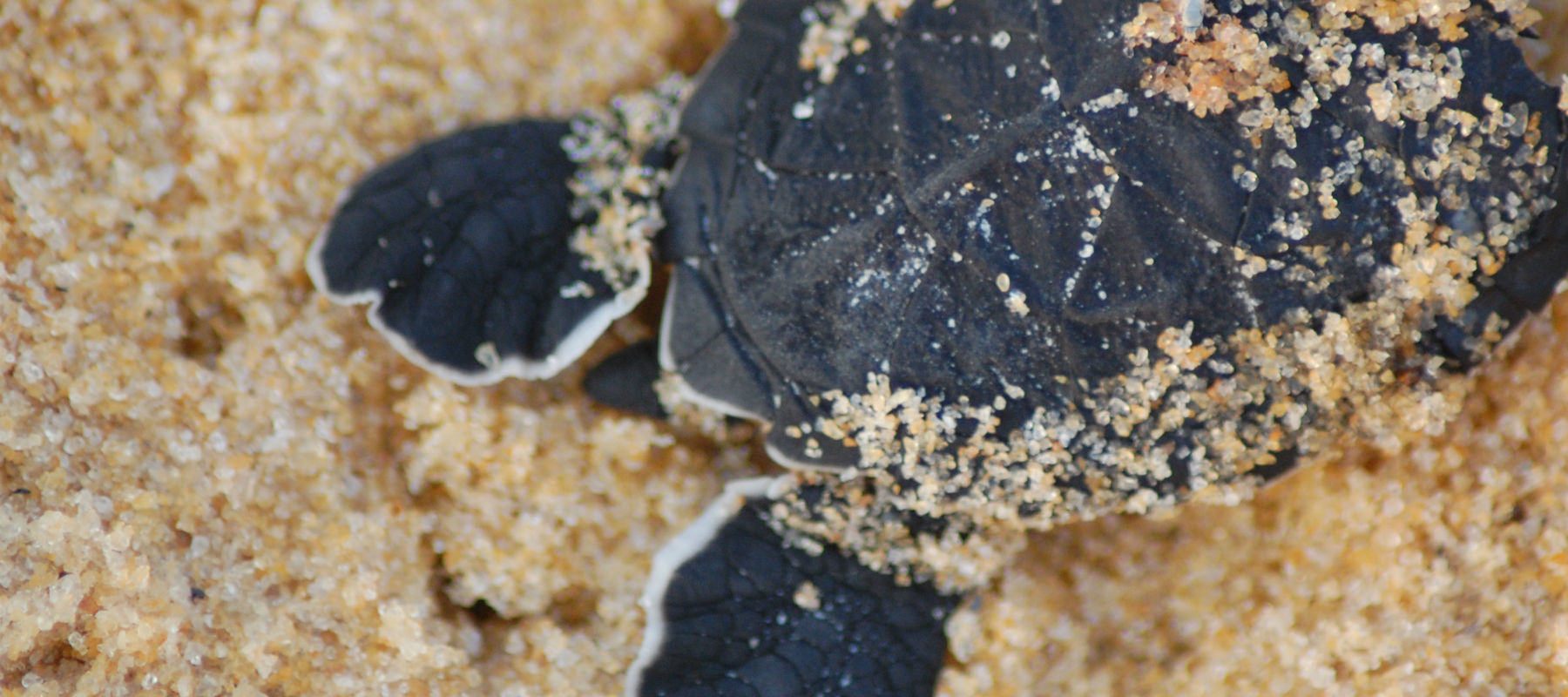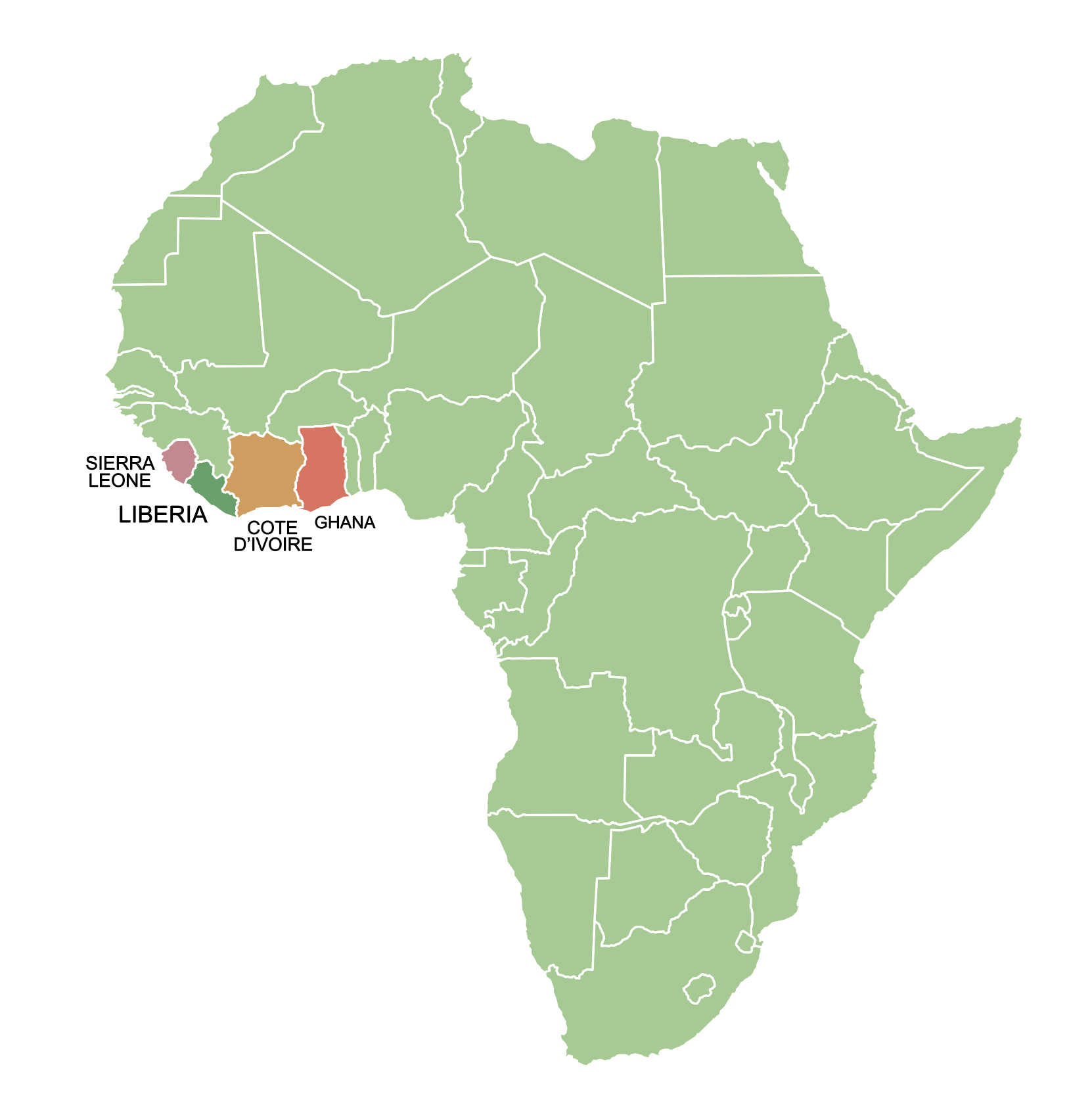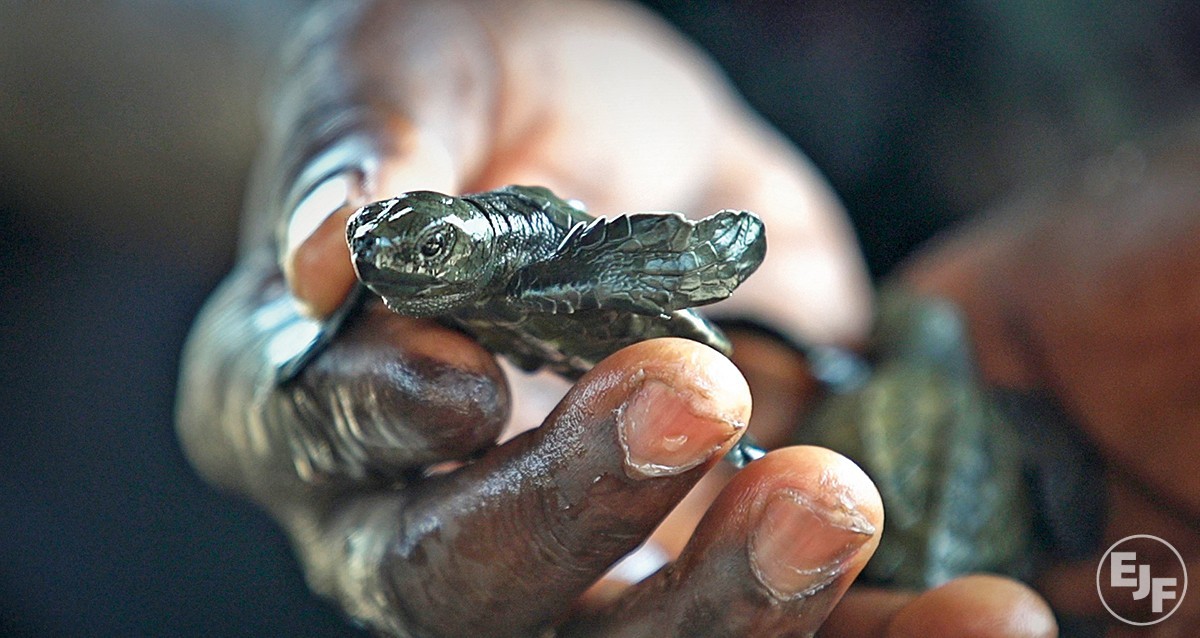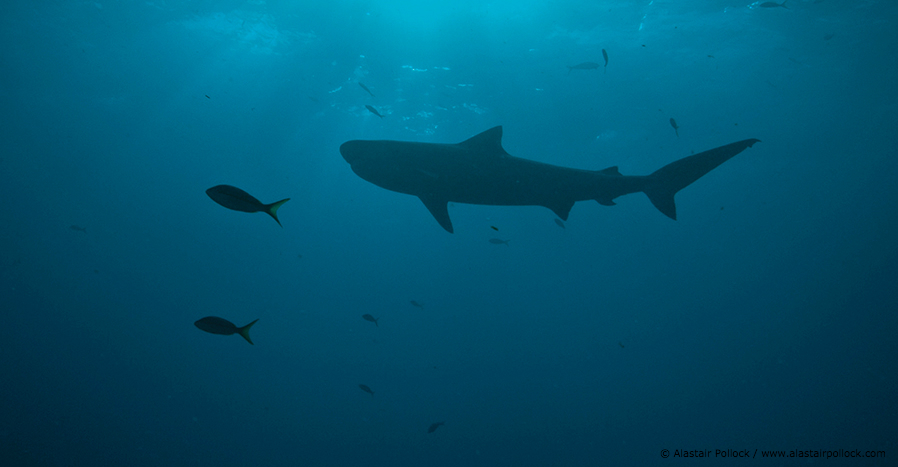In the last year, EJF's patrollers have helped twenty nine turtles nest safely and return to the sea unharmed by poachers.
By working with communities, we can increase the number of turtles we are helping, as well as eliminate the causes of turtle poaching.
We spoke to local people of the village of Grand Cess, located in south-eastern Liberia, to find out why they kill turtles and how we can work with them to stop this.
We wanted to understand why people are hunting turtles, and see what being a turtle poacher in Liberia really means.
Our mission is to bring real-world conservation measures to protect the turtles and to help their populations recover. To do this we know that we must successfully involve the local communities.
Liberia's turtles
In Liberia, there are four species of sea turtle.
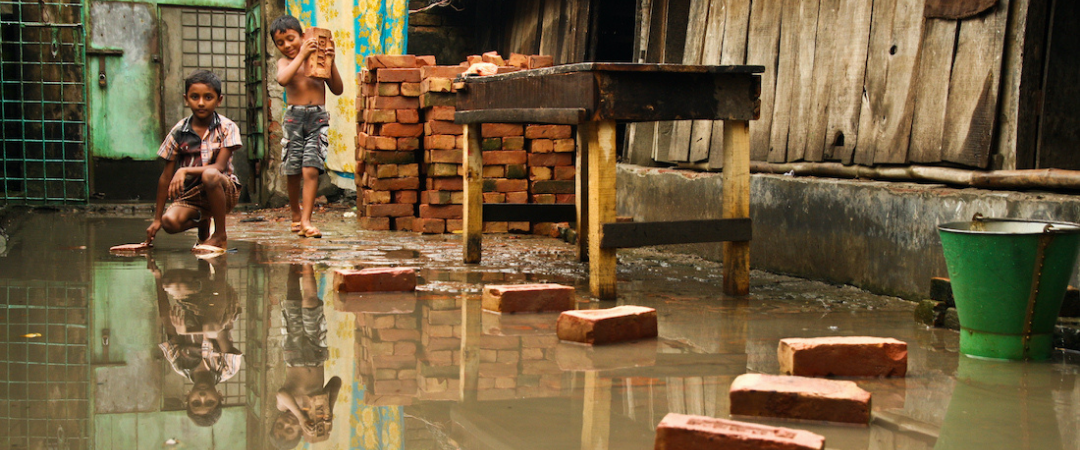
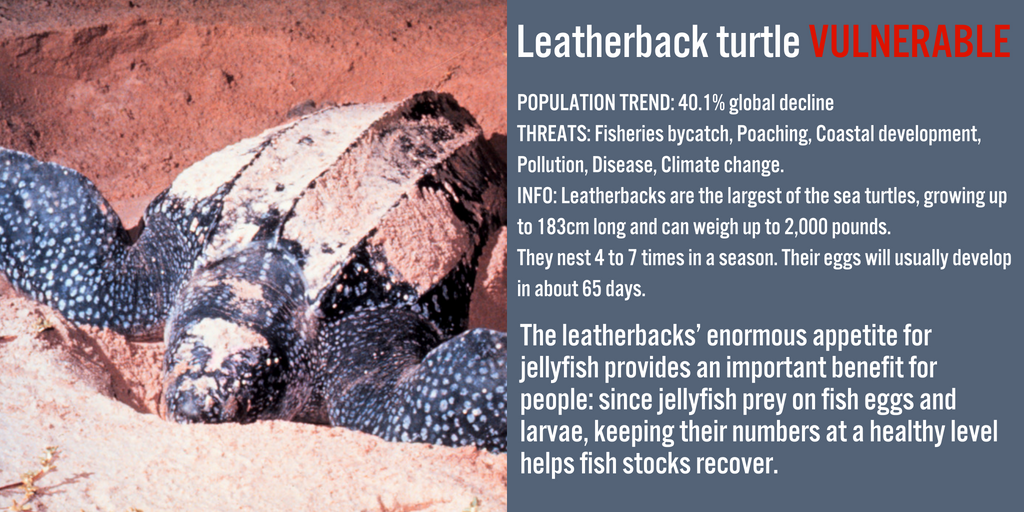
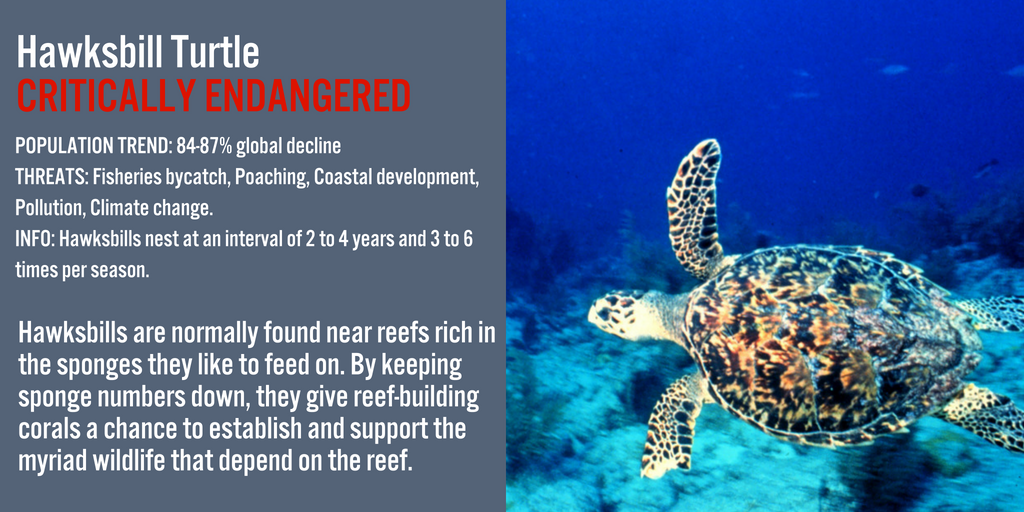
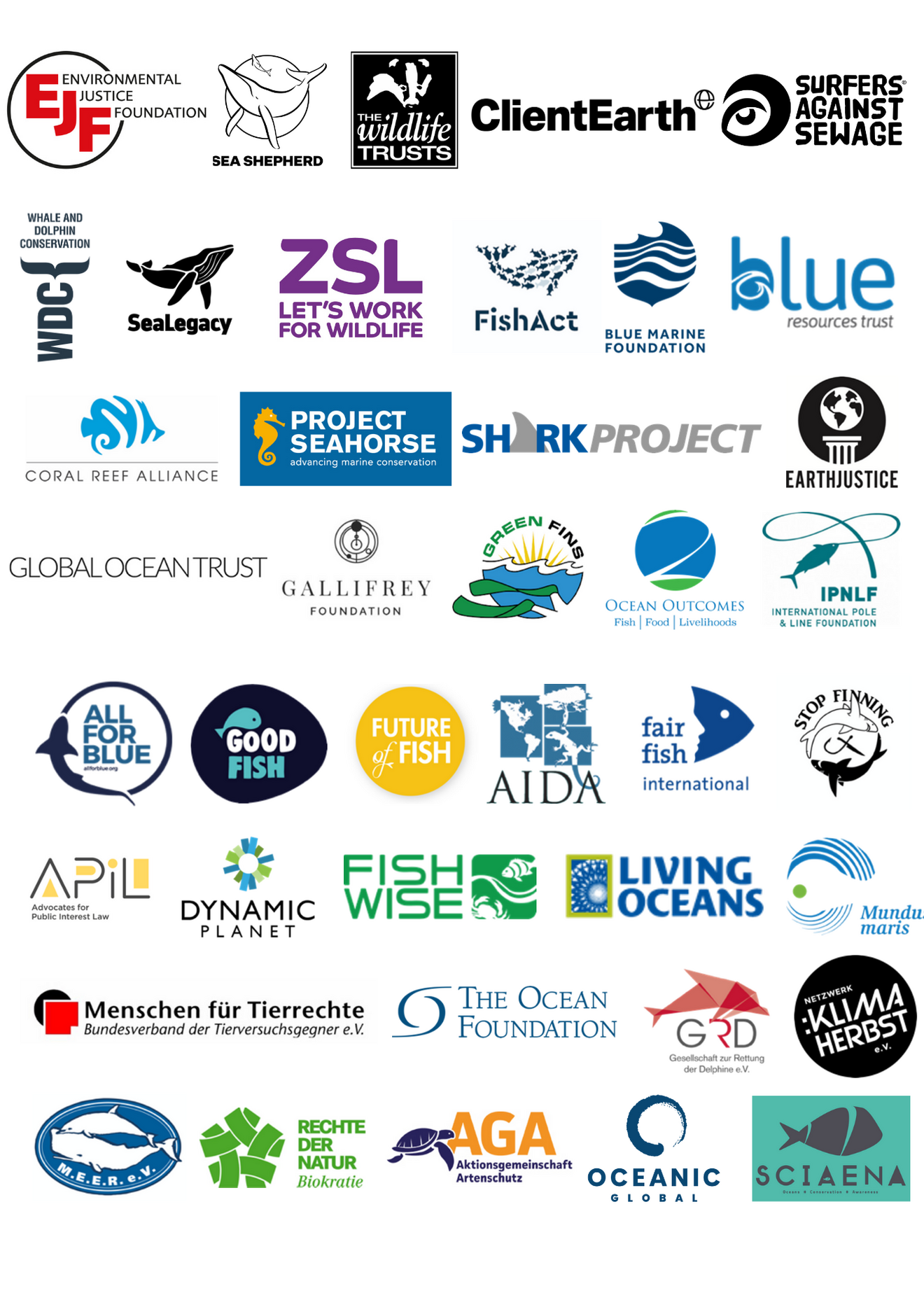
The relationship with turtles in Liberia
People have long relied on turtle meat for protein, and we were repeatedly told that the small profit made from selling turtle meat goes to paying their children’s school fees, especially when fishing is going badly. Our conversations highlight that the combination of things is driving people to turtle poaching. A lack of understanding in communities about the value of turtle conservation and the laws protecting them, strong traditions, and widespread poverty and hardship are all strong influences.
Turtle poaching in Liberia is a far cry from those making huge profits from the ivory trade. The profit made from turtles is often small, but people rely on it for their livelihoods, especially when fishing is not enough to sustain incomes or nutritional needs. What we found is that many people were unfamiliar with the fact that nesting turtles on local beaches are endangered. People did not know that turtles are slow to reproduce, meaning their populations are vulnerable to poaching. The role that turtles play in maintaining the balance of marine ecosystems, and keeping the oceans healthy was not something local people had been taught.
There are laws in Liberia that prohibit the killing of turtles in the water and on the nesting beaches. But we discovered that community members are not always aware of these laws, and with the government being under-resourced, the level of enforcement has been very low.
Patrols on the beach
EJF’s turtle conservation work has two strands. We are working with community members to understand why they hunt turtles and to see how to replace the need for this. At the same time we have also set up turtle patrols to address the immediate threat.
Our turtle patrol team are becoming well known in the community. Even small actions, like issuing them EJF ID cards have made a difference. These ID cards have given them more standing and authority to patrol the beaches and safeguard nesting turtles and their eggs, and have allowed them to work with the local authorities to ensure the law is enforced.
EJF's patrollers are learning how turtles reproduce, why they are vulnerable to hunting, and how to help them nest safely. They are passing these messages on through the community, and their presence has been noted in the community as making an immediate difference.
Between December 2017 and early February 2018, our patrollers helped twenty nine marine turtles, including leatherbacks and olive ridleys, to nest safely and return to the sea without harm.
Our patrollers are trained in defending turtles. They have been taught the Liberian laws prohibiting the killing of turtles and the poaching of their eggs. Our patrollers have been successful in persuading potential poachers to leave turtle nests unharmed, and have personally taken poachers to the authorities.
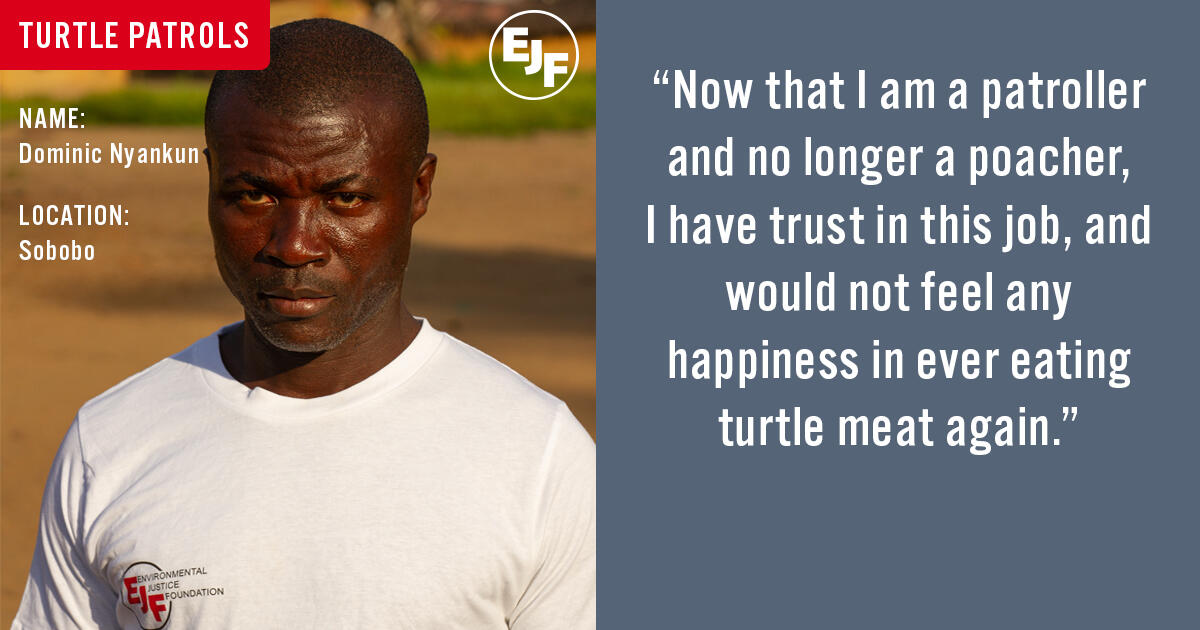
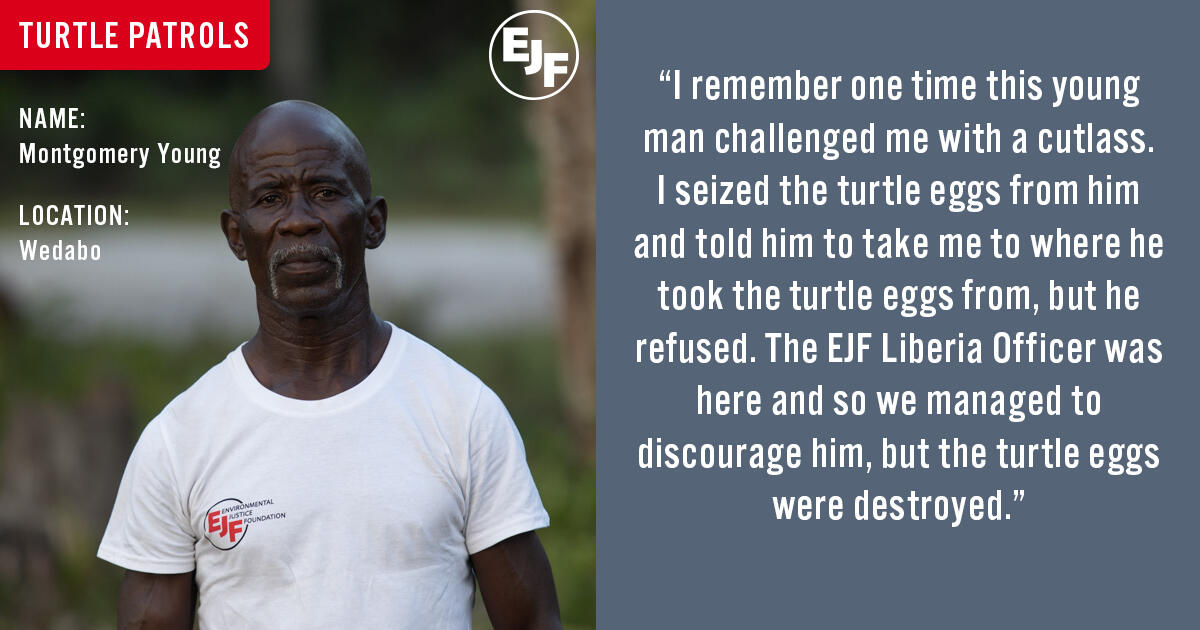
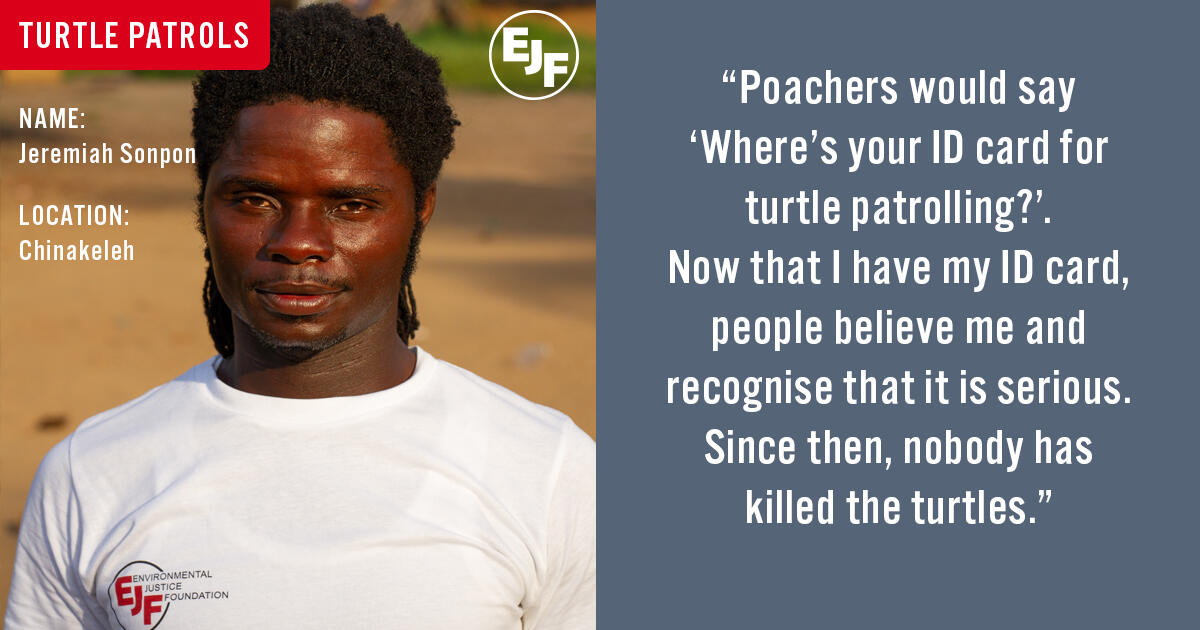
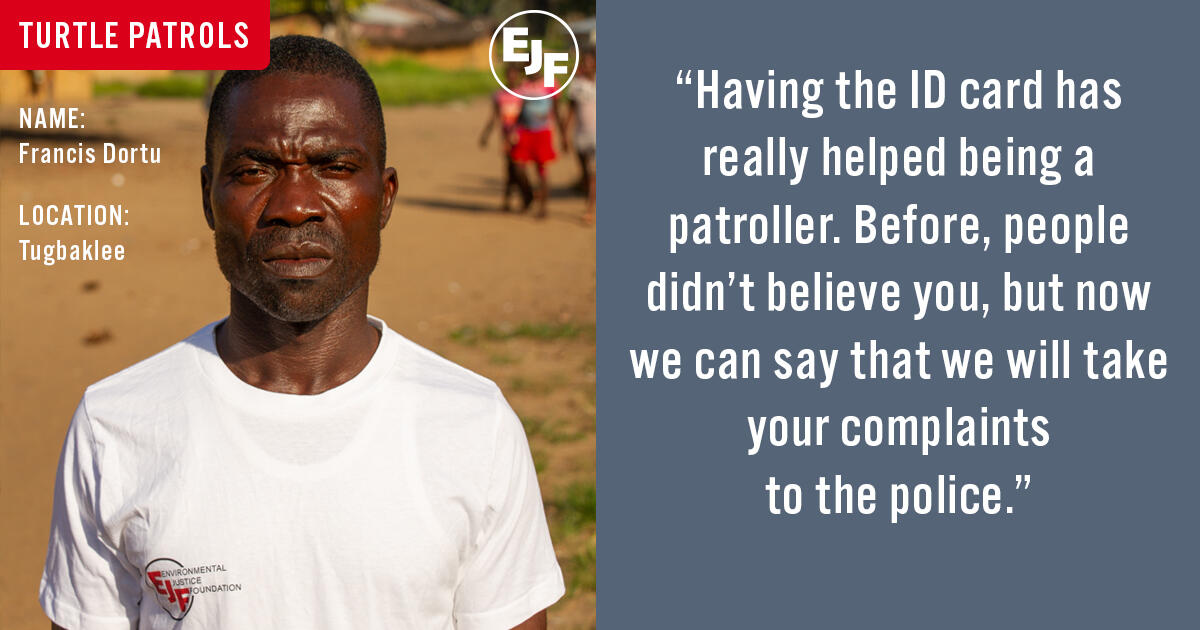
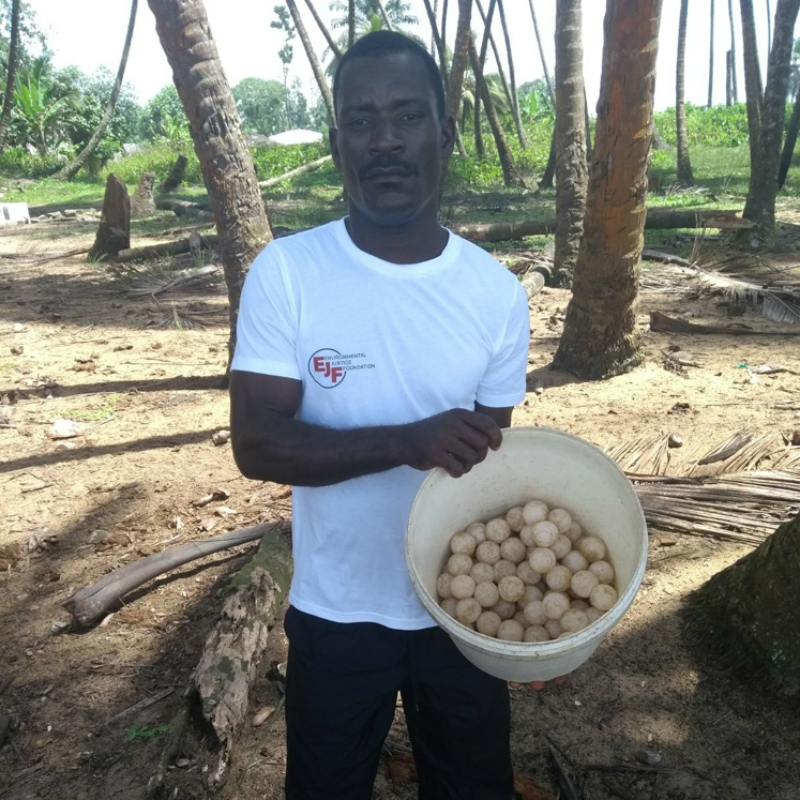
The law
EJF's approach is to encourage both enforcement of the law and prevention of the crime itself
When our patrollers found turtle eggs raided from a nest, the poacher was imprisoned for a week and fined 25,000 Liberian dollars (around £135). Fines of this magnitude have not been seen before, and demonstrate a growing understanding and concern about the effect poaching is having on turtle populations.
EJF’s patrols have a very real impact
When our patroller James recently discovered a turtle nest during a morning patrol, he covered up the tracks and the nest itself. But on returning, realised the nest had already been raided and the eggs were gone. EJF’s turtle patrol staff are well known in the community and this ensured those near the nest told James who had poached the eggs.
The poacher was not at home when the patrollers went to visit, but the eggs were found in his house. The local authorities were informed, and following a case in front of the Grand Cess Magisterial Court, the poacher was imprisoned for a week and fined 25,000 Liberian dollars (around £135). Fines of this magnitude have not been seen before, and demonstrate a growing understanding and concern about the effect poaching is having on turtle populations.
In order to ensure that this does not happen again, the poacher was warned by authorities while also helped by EJF patrollers to understand how destructive egg poaching can be.
Despite James doing all he could, and following best practice to cover up the nest, the eggs had been found. This may be due to previous knowledge, or simply luck on the part of the poacher. But the actions of the local authorities in imprisoning and fining the man show that improvements are being made.
By making an example of this situation, the authorities have shown that they take turtle poaching seriously, and are prepared to act. EJF’s approach is to encourage both enforcement of the law and the prevention of the crime itself. To understand and address the real causes of poaching we interviewed people with a history of turtle poaching. We wanted to find out why they do it and what it would take for them to shift their reliance on turtles.
EJF interviews turtle poachers in Grand Cess
It was clear that we needed to understand the poachers' motivations and relationships with turtles better.
We wanted to know whether they were aware of the laws protecting turtles and why they killed them and took their eggs. Key to this was a better understanding of whether the turtles were sold for profit, killed only for food, or as part of a wider tradition or cultural practice.
These are some of the answers we heard:
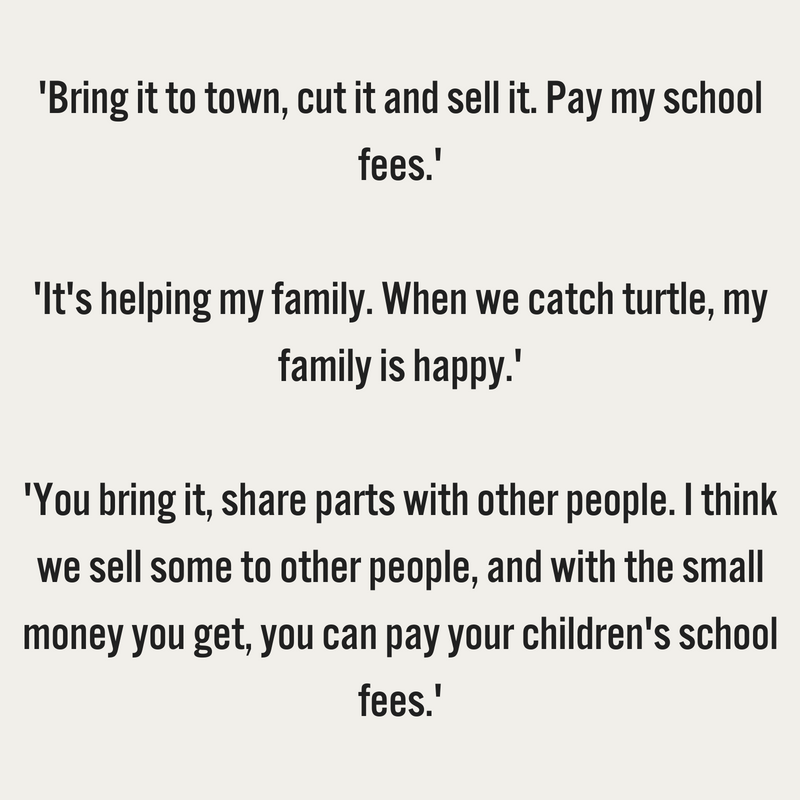
Why do you hunt turtles and what do you do with them?

What does turtle hunting mean to the community?
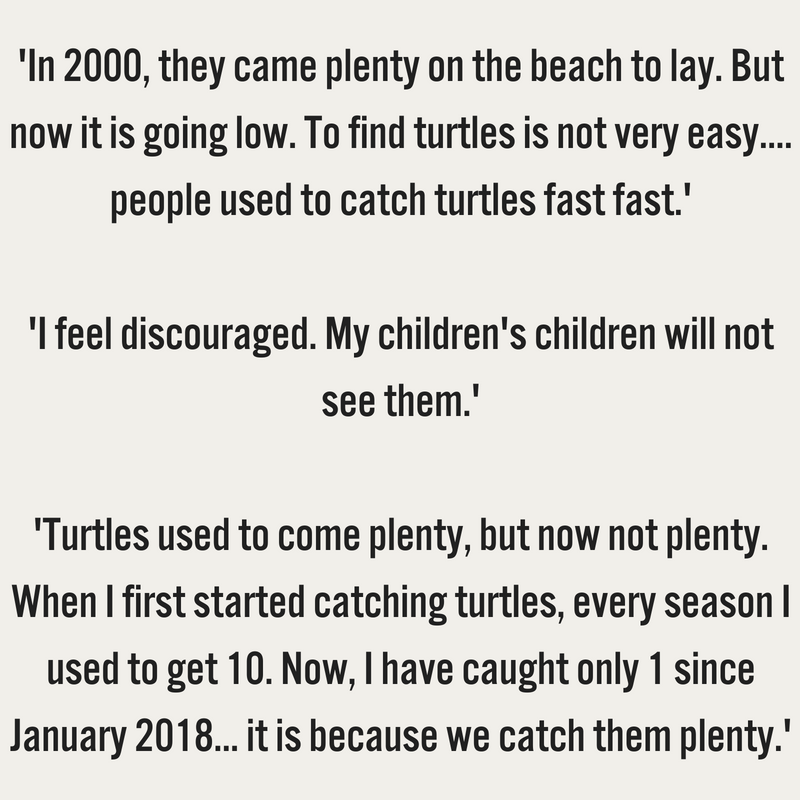
Do you think turtle numbers are going down?
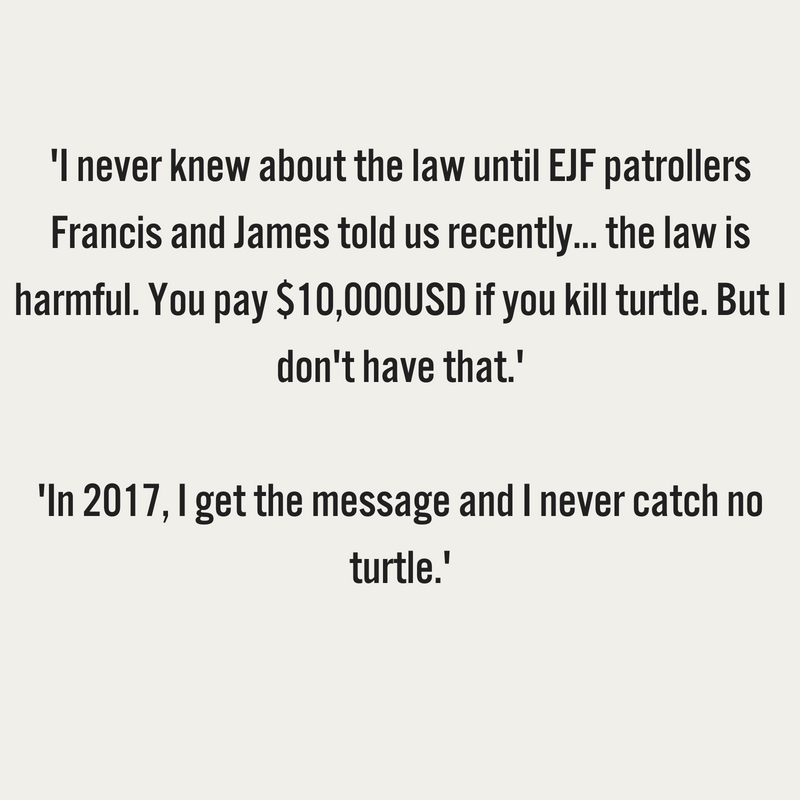
Are you aware of the laws on turtle hunting?
Our interviews exposed some key aspects about the community's relationship with turtles.
It is clear that most people understand that turtle numbers are falling. But while fishing is difficult for many of the coastal towns in the south, turtles remain a key source of food and income.
EJF's patrols are making a real difference. As our patrollers have become better known and more accepted in the local community they have been able to make sure the laws are understood and, crucially, they have become the first point of contact when any conflict arises. Bringing the EJF patrols to the beach is directly preventing the killing of turtles, while keep the local communities engaged and involved.
We need to increase the number of people we train to be patrollers. We will continue to train local people, not only on the law prohibiting them from killing turtles, but also on the importance of turtles to the health of the oceans.
Our community meetings will concentrate on making sure we have real discussions about the reasons for turtle poaching, and how we can collaborate with communities to shift the reliance from turtle poaching. We are working to ensure that the local community value turtles and allow turtles to nest and their eggs to hatch, and what conservation incentives could be introduced to help safeguard turtle populations.
Join us and help us secure a future for Liberia's turtles
We need to increase the number of patrols before the nesting season this autumn. To do this, we need to train more community members, and provide them with the equipment to do this safely and effectively.
We are appealing for donations so we can train more patrollers and ensure more turtles are saved from poaching.
